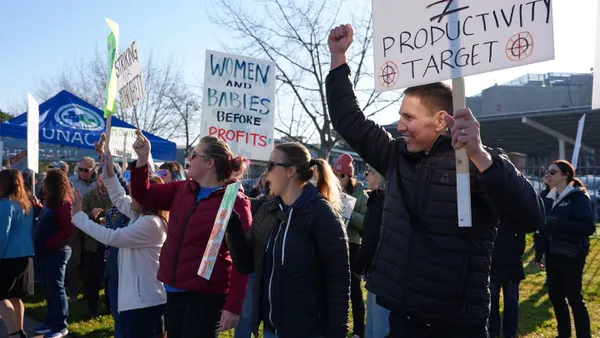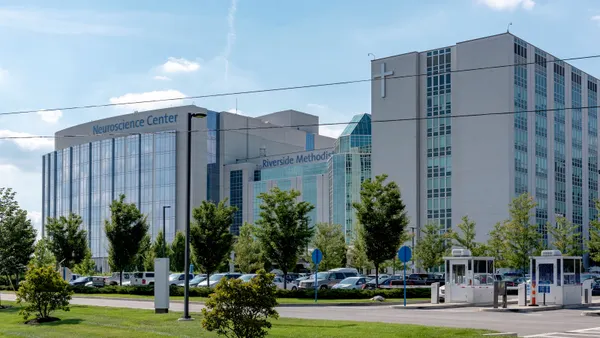Dive Brief:
- U.S. physicians say their workplaces are trying to hire more workers to help meet demand for services, but a lack of qualified talent is stymieing efforts.
- In a new survey of 1,001 physicians conducted by Medscape, 63% of respondents said there was a lack of qualified physicians available in their local job market, and 30% said application quality for open doctor roles had declined recently.
- Many don’t see the situation improving: Nearly 6 in 10 respondents described themselves as “very unconfident” or “unconfident” that progress could be made on the physician labor shortage over the next decade.
Dive Insight:
The Medscape report is the latest analysis to underscore that, although the healthcare labor market has improved since the COVID-19 pandemic, healthcare providers are still struggling to fill positions.
Nearly 70% of survey respondents said their workplace was actively attempting to hire doctors either full- or part-time. Hospitals and healthcare organizations were more likely to hire than office-based practices, which could be due to patients seeking out care at larger organizations, according to the report.
Most said their workplace sought to fill less than five roles. The relatively low number of open roles is somewhat “reassuring,” according to Maddi Davidson, principal and senior director of market access with Avalere Health, who was interviewed by Medscape for the report.
She said that fewer than five openings could be attributed to natural turnover. Six or more openings in smaller practices or 20-plus open roles at large care settings would signify a more systemic mismatch between labor supply and demand.
Still, surveyed physicians said it’s been vexing to fill the few open roles. Doctors blame a lack of young, qualified talent. Some anonymous respondents said medical school applications haven’t kept pace with need. Others alluded to problems with the quality of medical training, saying interactions with young doctors left them with reduced faith in residency programs.
Davidson suggested that employers struggling to hire begin to place a higher premium on practical experience over what is on paper, like an applicant’s education level. Other studies have said increased utilization of immigrant workers through H1-B visas or new visa categories could expand the supply of qualified healthcare professionals.
Tackling the labor shortage is paramount to improving burnout. Four in 10 respondents told Medscape that labor shortages impact their day-to-day by forcing them to take on more patients or work more hours.
“Physician shortages become a compounding problem because they drive physician burnout and turnover, leading to even worse shortages,” Jeff Decker, president of the physician and leadership solutions division at AMN Healthcare, told Medscape. “At some point, you can stretch physicians and other providers only so far.”














